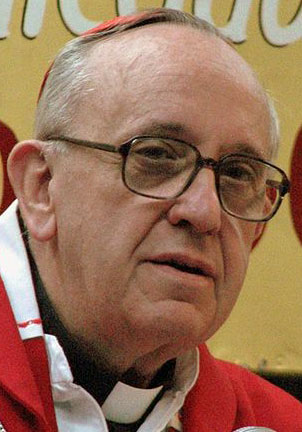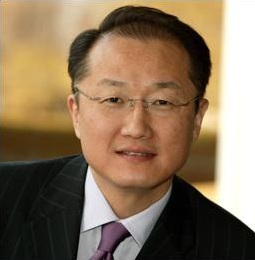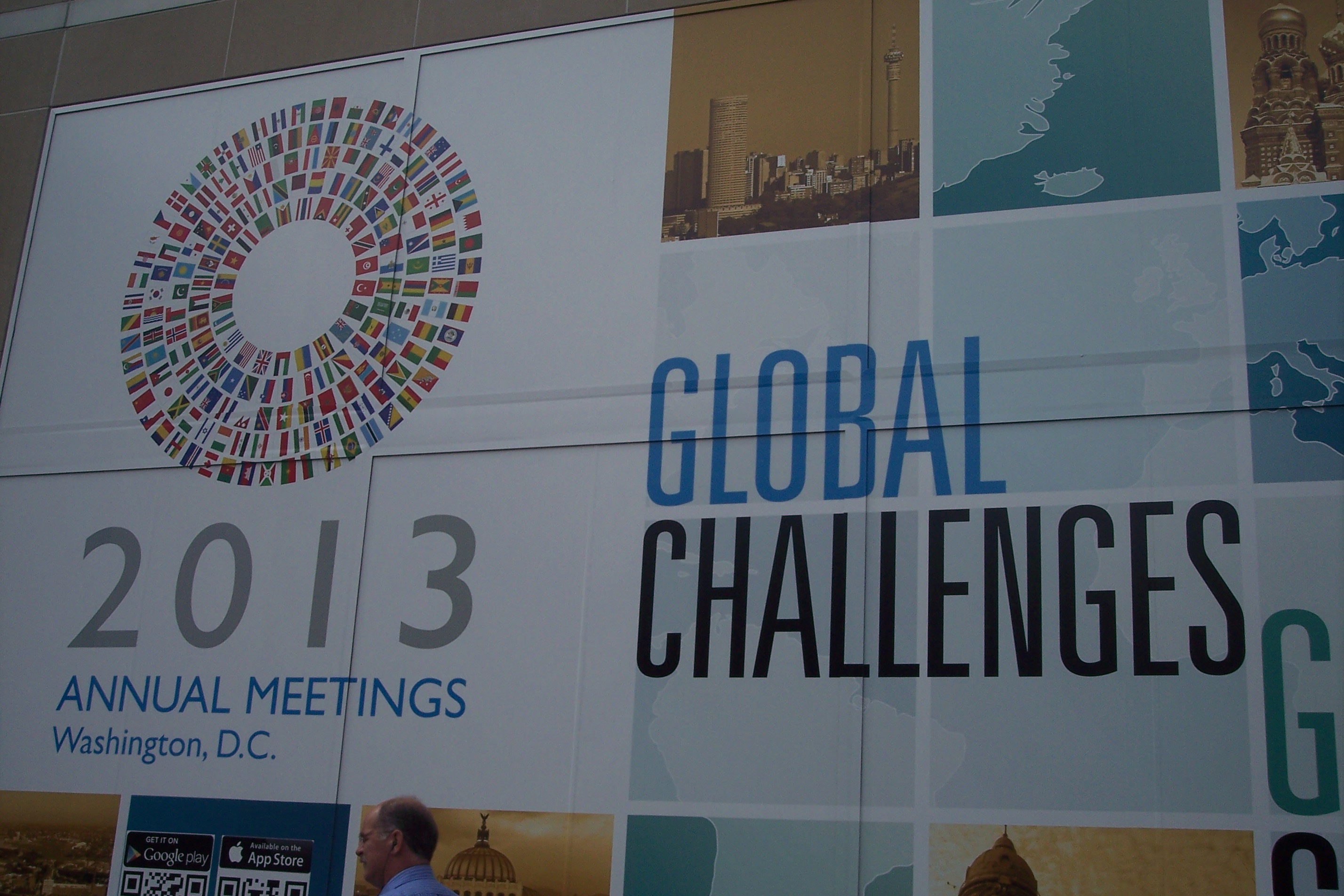How the World Bank can help end global LGBT poverty
Colin Stewart is a 45-year journalism veteran living in Southern…
The World Bank has an important role to play in ending discrimination against LGBT people worldwide and enabling them to become full participants in the world’s economic life, according to the Rev. Canon Albert Ogle, president of the St. Paul’s Foundation for International Reconciliation.
These are excerpts from remarks he made during a panel discussion on Oct. 11 during the World Bank’s annual meeting in Washington, D.C. To read his full presentation, see “Ending global LGBT poverty – will the World Bank help?”
Ending global LGBT poverty – will the World Bank help?
BY THE REV. CANON ALBERT OGLE

We have come a long way since that first meeting of 20 individuals (representing some of the 26 countries where it remains a criminal offense to be LGBT) who met with Bank Management in July 2012. They shared stories of discrimination, persecution and resilience. Criminalization and stigma meant they did not enjoy quality of citizenship or equal access to healthcare, business opportunities and education afforded to their heterosexual citizens.
The St. Paul’s Foundation was honored to be this simple conduit for conversations. The Bank’s management listened to these authentic, largely silenced and invisible LGBT people to share their stories and engage some of the Bank’s systems, mainly these Civil Society dialogues. …
Recent reports on social inclusion indicate the Bank’s desire to include LGBT people in deeper conversation and program planning and accountability. Much has been accomplished on paper and in these personal and informal conversations. It remains to be seen how this inclusive policy will be actualized, particularly in the countries where LGBT people are criminalized and stigmatized.
Why is the faith community engaged in LGBT issues at the Bank?

The Bank needs the religious community as a partner, particularly around gender issues (a moral issue) and equally around LGBT issues. The Bank and its partners will never alleviate extreme poverty, as UNAIDS will never get to zero on HIV issues unless there is a clear road map where LGBT people, the Bank and these large faith-based NGO’s and the enormous cultural clout that they can influence. If LGBT poverty is not addressed, these goals are mere aspirations and dreams.
I have just returned from Rome where a similarly large institution, like the World Bank, has a new leader who seems equally committed to the eradication of poverty, creation of employment and the inclusion of LGBT people and has said so. Now, I am not a Catholic, but the Pope’s recent statements have the attention of the world. He has also identified the most significant barrier to implementing these reforms – the Curia or Senior Management of the Church (to use a familiar term within the Bank).
Pope Francis gave an unprecedented interview with one of Italy’s most prominent atheists last week where he described the Curia as “the Leprosy of the Church”. Instead of seeing itself as being the quartermaster resource to help the People of God get on with the job of repairing the world and alleviating suffering and poverty, they see themselves as Generals who are in charge and gatekeepers of power and resources. They have inverted their role as servants of the movement to being Overseers.

Pope Francis has created a fresh moral climate, rather like that of President Kim’s recent vision of the Bank as a servant principally to those communities who have been previously excluded from the Bank’s resources, wisdom and technical expertise. Now, yesterday, the Bank’s leader, Dr. Kim, when asked about the Senior Management and staffing here, was much more diplomatic and described you all as “Encrusted and ageist!”
Protecting and advancing the mission — end poverty
Both leaders are to be commended for their call to serve the most vulnerable, but unless the Curia, senior Management and the programs which emanate from these noble institutions embrace this servant leadership model, their common vision will only be a dream. …
Learning from the experience of the U.S. government
There is a parallel situation to this steep learning curve for the Bank on LGBT poverty issues with the U.S. government’s recent foreign policy changes on LGBT issues, from December 2011. Government departments were given 100 days to create policies and missions were to come up with plans to support LGBT activists and people engaged in controversial work, like HIV prevention specialists, who were being arrested because they were working with LGBT people.
This all sounded wonderful and, on paper, these policies looked good, but when you stood in the shoes of activists and HIV workers in places like Uganda, Cameroon or Zambia, the persecution of LGBT people actually increased, HIV workers were more harassed, imprisoned and even killed. Murders were not investigated or given due process and the largest criticism was the U.S. government funding to anti-gay religious organizations continued.
Contracted to provide HIV prevention and care to everyone, including vulnerable populations, these organizations blatantly refused to provide services to LGBT people. In Uganda’s case, when we reported to USAID and PEPFAR staff in the embassy in Kampala that these contractors were not serving people they were paid to serve, donors looked the other way. We asked for a meeting between the LGBT service organizations and the contractors and this has still to be realized. We finally had to form a Consortium of some 14 organizations who are working on the front lines of these health issues.
The U.S. government can find $750m a year to fund The U.S. Catholic Conference of Bishops work around the world or $250m to World Vision, but we could not find $5,000 to help the Consortium meet or go on a retreat. For years, these grass-roots organizations have been excluded from the normal contract RFP processes and yet they are doing extraordinary work with communities who represent three or four times the average rates if HIV infection.

Two years after Secretary Clinton’s historic speech, the U.S. government has still not provided funding for sensitivity training of local nationals who work for agencies like USAID and PEPFAR, so the gatekeepers of these funds remain more influenced by the anti-gay propaganda of their pastors and politicians than by information provided by service providers who have experience with working with these populations. HIV is now a global pandemic for Men who have Sex with Men (MSM) but we will never get to zero infection and zero stigma while basic training and access to funding issues are systematically ignored. Funds continue to go to abstinence-only programs around the world, simply because religious and cultural ideology and inertia trumps evidence-based approaches.
A desperate need for research and empirical data
The lack of informed research is also a major barrier to reduction of stigma, HIV infection or poverty among LGBT people. This year, the CDC Representative in Uganda told the Consortium in my presence, there were only 8,000 Men Who have Sex with Men in Kampala, based on a CRANE study and the implication from this data was “Why upset all these religious contractors when there are so few MSM’s in Kampala?” We deeply questioned his data.
But this is part of the institutional homophobia that needs to be transformed if we are to target effective prevention and treatment. Research is desperately needed so informed policies and strategies can go forward. There is a possibility without serious intervention, that one in two LGBT people will be HIV positive by 2050 if we do not. …

This is not rocket science. Without the sensitivity training for Senior Management at the Bank and direction from the President to mainstream LGBT issues with informed and reliable data, places like Uganda will be allowed to continue their inefficient and discriminatory practices and rewarded through U.S. government and the continued support of the international community and the Bank.
These are difficult conversations for in country Directors and Bank staff. Resistance, inertia and even sabotage are to be expected, so what is the plan for the Bank to push through this? What is the plan to organize a stigma inventory and self-reflection within the organization itself around LGBT issues at all levels of the Bank and how can Civil Society walk with you and support you in this challenging new topography?
LGBT — a moral issue the Bank can no longer ignore
It will be no longer appropriate for Bank staff or leaders in Civil Society to say “This is not our issue, or the data is just not there to support my department’s time and energy.” …
It is in no one’s interest to spend half a million dollars conducting a review of programs in several countries where LGBT people are not full and equal beneficiaries of a good-quality poverty-reduction program.
I would rather take that half million dollars and give it to Khemraj to help professionalize their research on how rural LGBT people in Guyana can get freed from stigma, HIV and poverty. Instead, it would be better invested in Coalition building in places like Uganda, where capacity building and a road to access mainstream funding could lead to cooperation with faith-based NGO’s than fighting each other. Young leaders like Khem in Guyana who have done extraordinary community information-gathering desperately needs the tools – the research methodology the Bank has to offer. When President Kim talks about the Bank being a reservoir of knowledge and experience, the question should be to Khem and others simply “How can we help you?”
Cultural competencies for senior Bank personnel in LGBT issues
Country managers should be comfortable and informed enough to be able to visit Khem and the extensive networks of the under-served and invisible the Bank is seeking to serve. …
You cannot give $40m to a country for health care infrastructure and watch a government jail your HIV prevention leadership, whatever their sexual orientation. This is a moral issue and an economic one. It does not make sense to waste this kind of potential.
Pope Francis’s challenge to the clergy and leadership of the church was to “Smell your sheep” and not to lose touch with the people we are called to serve. I am sure President Kim can find an equally basic principle to steer this leadership to renew the Bank’s vision, mission and direction. As he meets with Pope Francis late this month, I am sure they will have a lot to talk about and to work on together.
Related articles
- Steps toward LGBT equality via D.C., Rome, the Gambia (Oct. 8, 2013, 76crimes.com)
- Guyana man will advise World Bank on LGBT poverty (September 2013, 76crimes.com)
- World Bank eyes how anti-LGBT stigma boosts HIV, poverty (April 2013, 76crimes.com)
- World Bank may join fight against anti-LGBT bias (July 2012, 76crimes.com)



